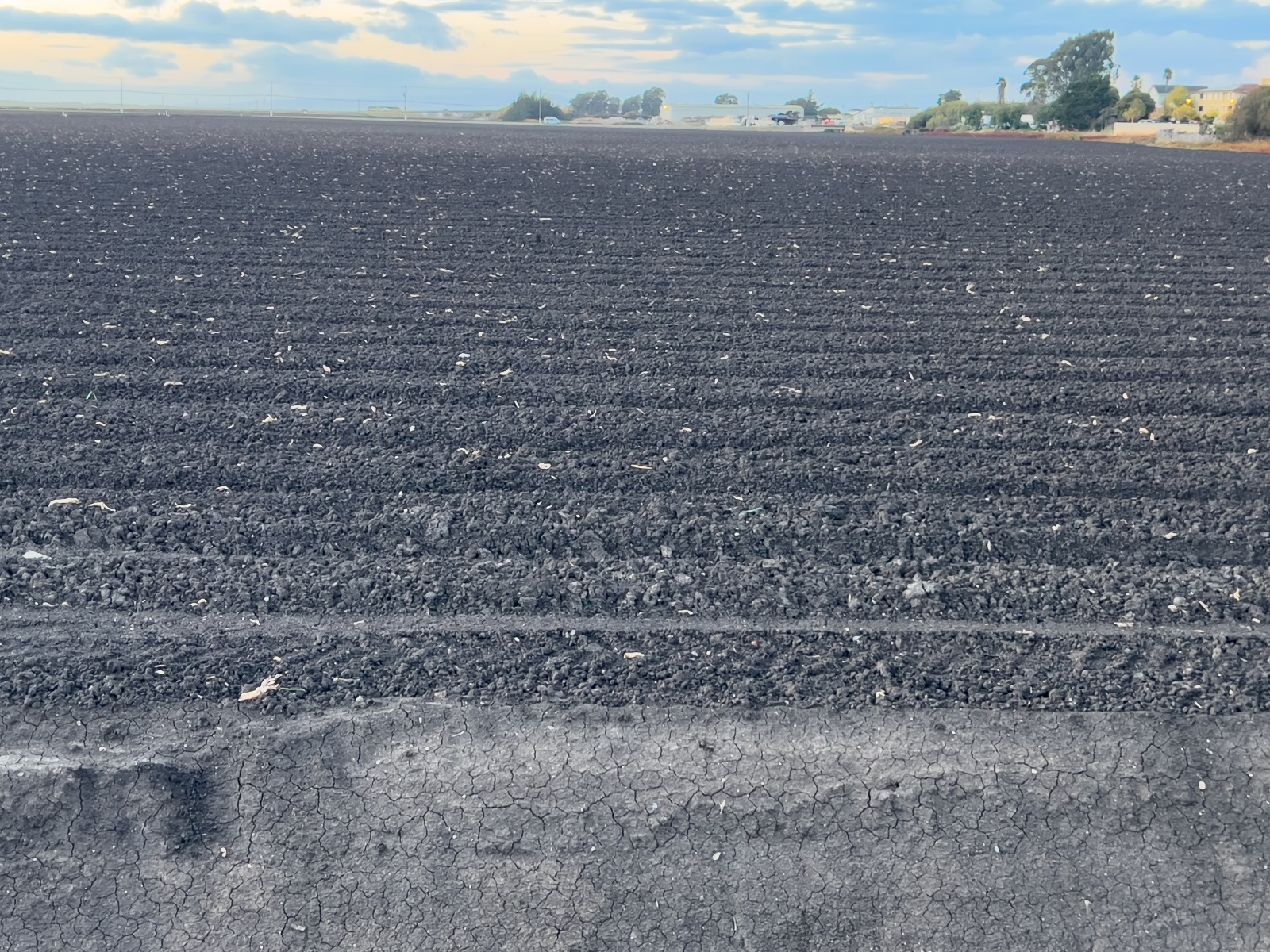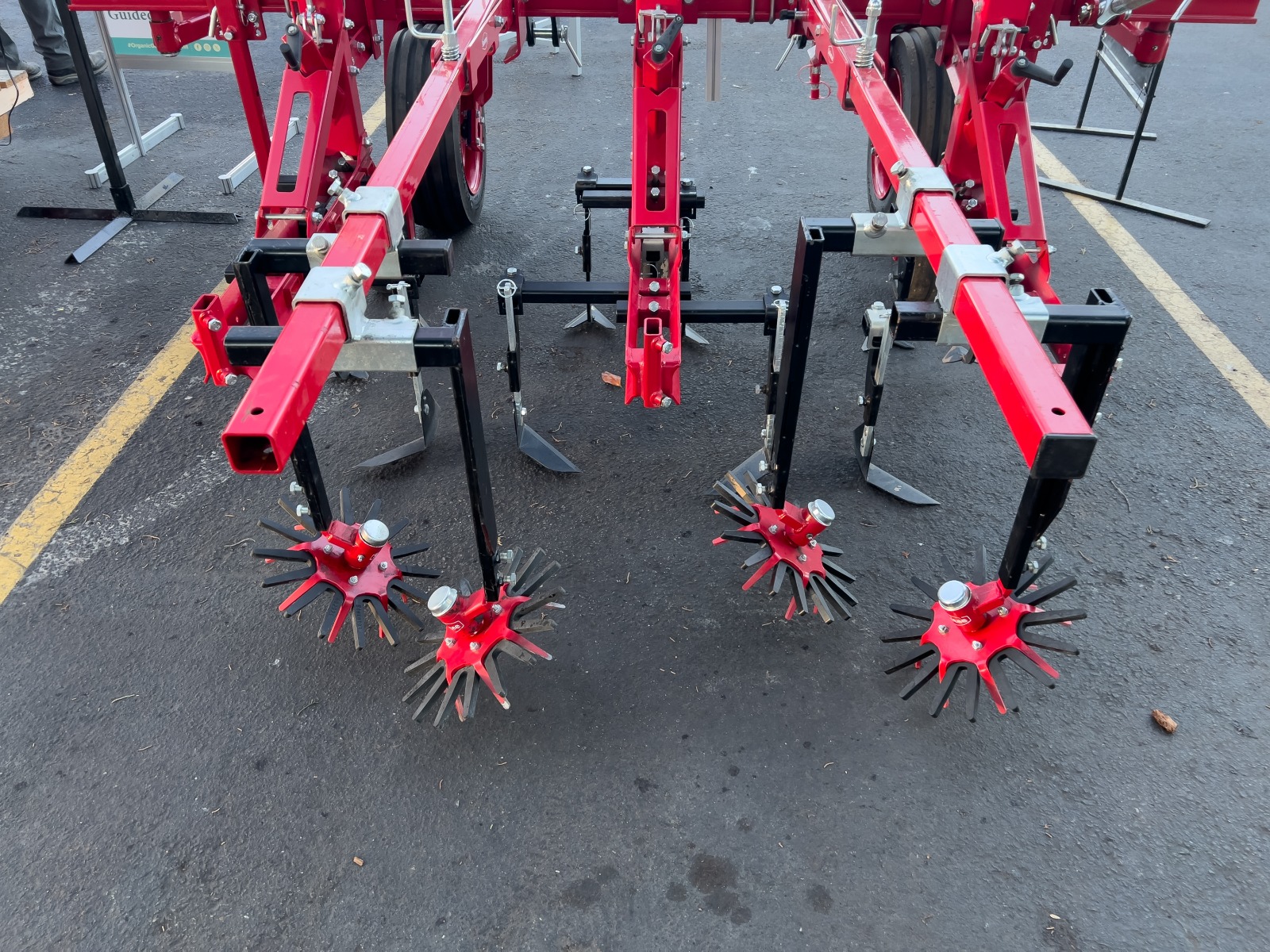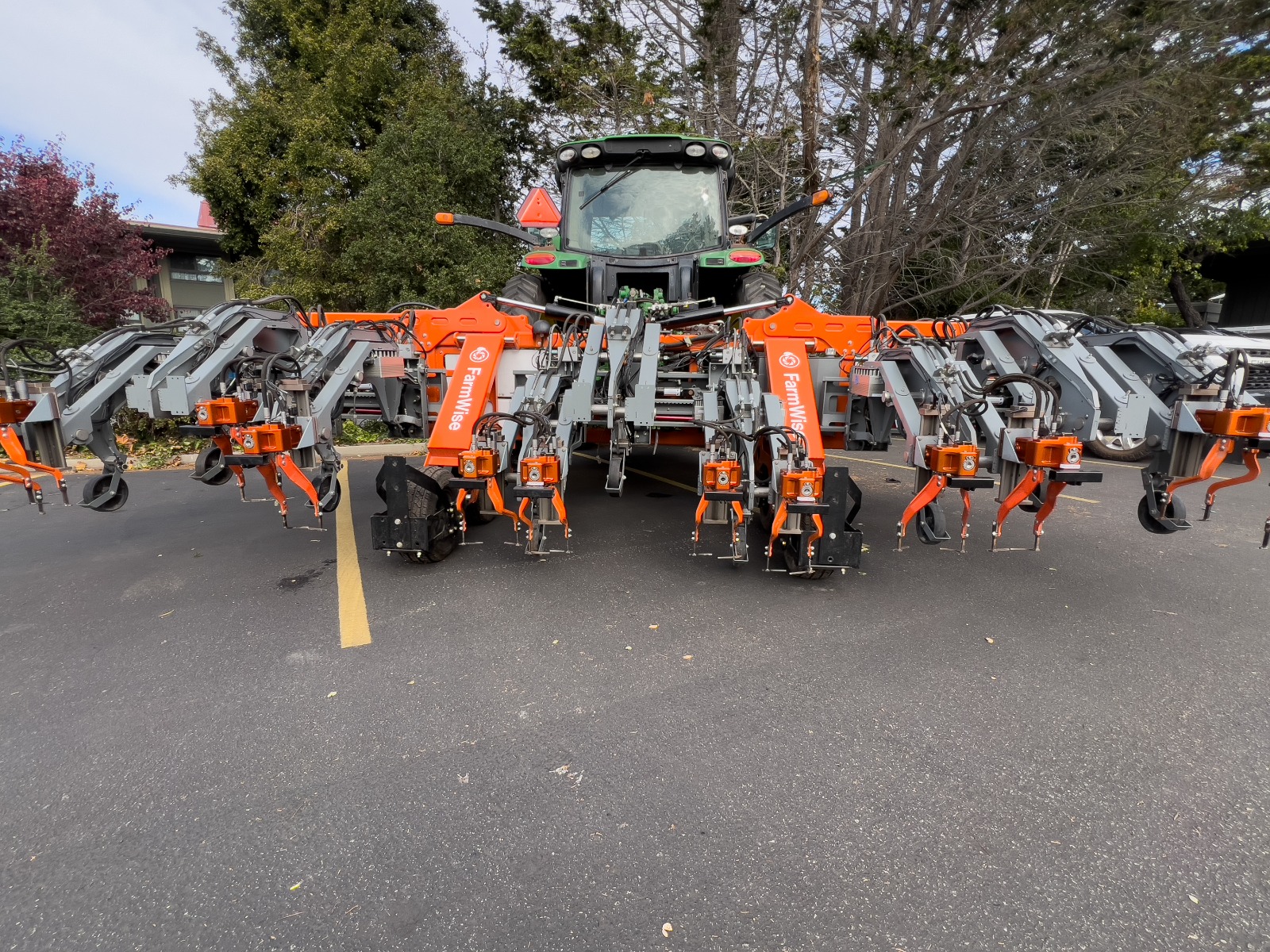
By Ruth Dusseault. Bay City News.
Interestingly, it is difficult to find a job that fights in the era of climate change. But the organic farming industry is a place where a person can make a living by making a difference.
Food systems account for between 20 and 30 percent of global greenhouse gas emissions, according to World Bank data. The reinvention of agriculture could impact the future as much as the electric car.
At last week's Organic Growers Summit, hosted by Western Growers and Organic Produce Network, more than 600 growers and industry leaders, mostly from California, gathered in Monterey to share problems, solutions and business cards.
Big issues included new technologies and new government regulations that could increase costs. Behind nearly every discussion was the regenerative health of soil and its potential to fight disease, repel pests and sequester carbon.

California leads the country in organic agriculture, with more than 3,000 certified farms, according to 2022 figures from the United States Department of Agriculture or USDA. In 2021, the state's organic sales exceeded $14 billion. That's the equivalent of $43 per person in the US who buys organic products. In the Bay Area region alone, which spans from Monterey to Sonoma counties, there are more than 1,550 organic producers generating nearly $1.4 billion in annual gross sales.
Gradually, more conventional farmers are adopting organic products and some are transforming their multi-generational farmlands. They bring business expertise, innovations and capital to what was once a niche economy.
“I'm in this for the money,” said Carlos Amaral, a San Mateo County producer, who said he is willing to face the higher cost of production because the buyer is willing to pay more in exchange. Today's younger shoppers, he said, are more environmentally conscious.
But by March 2024, organic prices could rise as new USDA rules for organic certification take effect. The Strengthening Organic Application (SOE) standard will set new standards for everyone involved in production. All links in the supply chain (growers, distributors, transporters and importers) will need to be organically certified.
“You're checking that they understand how to keep things organic,” said Danny Lee, an inspector with the California Department of Food and Agriculture. “You will be sure that they do not mix organic products with non-organic products, which may have different pesticides or other inputs.”
It's going to be more expensive, he said, but whether it passes depends on who is willing to absorb those costs and what end retailers are willing to pay.
The summit focused on the unique challenges of specialty crops, such as leafy greens, berries and carrots. They are different from staple crops such as corn and soybeans, which are grown on a large scale using herbicide-resistant seeds and industrial harvesting methods.
Specialty crops are labor-intensive and synthetic herbicides like Roundup are not allowed on organically certified farms.
“What I see oversaturated is the weeding market,” said Bart Walker, who runs an equipment rental company.
Walker was referring to the variety of mechanical weeders on display at the summit. Instead of asking workers to do the backbreaking work of pulling weeds by hand, engineers have designed a variety of machines to do it. Pulled by a tractor, rotating paddles, blades and tines disturb the soil between rows of crops and prevent weeds from taking root.
“What I'm excited to see is more lasers,” Walker said.

“It turns out that having people walk through the field and pull up weeds with hoes and tools will damage some of the plant structure,” said Paul Mikesell, inventor of the Carbon Robotics LaserWeeder. “When the weed is tall enough for a person to pull it out, the root structure is deep enough to disrupt crop roots as well.”
LaserWeeder uses artificial intelligence to identify weeds when they are just sprouts. Costing $1.4 million, it uses flash photography to create thousands of high-resolution images of the ground as it crawls across a field. Onboard computers interpret the image information and send it to robotic mirrors at the back of the machine, which rotate to direct a laser beam. Weeds are eliminated in a cloud of smoke.

“It doesn't damage the topsoil, it doesn't damage the ecosystem and it's also good for the environment,” Mikesell said.
For centuries, farmers plowed fields between seasons, but now they are told to use a tender touch. Exposing topsoil to air releases trapped carbon. Sunlight burns important nutrients and good fungi that organic farmers use to combat pests and diseases. Carbon capture is a new role for farmers, as evidenced by two awards presented at the summit: an Ag Shark Innovator Award and a Producer of the Year Award.
Jason Aramburu is the founder of Climate Robotics and inventor of a small mobile biochar incinerator. Imagine a pottery kiln on wheels. It can move around a processing plant or crawl behind a tractor. It digests waste, such as corn stalks, wheat, straw, and nut shells, and deposits biochar right there in the soil.
“Biochar is a very pure form of charcoal made from agricultural waste that we burn at a very high temperature and apply back to the soil,” Aramburu said upon receiving his Ag Shark investment award. He cited university studies that showed biochar can generate 16 percent more plant production compared to fields without biochar. It has increased soil water retention by 51 percent and fertilizer retention by 95 percent, he said.
“If we do this on a large enough scale, studies indicate that we can sequester around 2 billion tons of CO2 annually in the soils of our farms,” Aramburu explained.
The USDA offers about two thousand dollars per acre per season to producers who apply biochar to their soil.
“Agriculture is considered the second largest CO2-producing industry, just behind fossil fuels,” said Rod Braga, of Braga Fresh Farms, when accepting the Organic Producer of the Year award.
“The pressures really come from the top down,” he said of the pressure for agriculture to adopt conservation measures. “I'm not talking about retailers. I am referring to the United Nations, the World Economic Forum, the European Union.”
Braga talked about the ways agriculture has tried to be carbon neutral: using less diesel fuel, planting one crop on top of another instead of tilling it, and investing in carbon sequestration elsewhere to offset the carbon generated on local farms. .
“Now they're talking about net zero emissions,” he said, referring to the theory of an economy that emits no more greenhouse gases than are permanently removed and stored.
“How can we get to zero in agriculture without cutting crops and starving millions? We can capture carbon while we farm,” Braga said. “We are still growing vegetables and other crops. We need to be the answer. More agricultural acres is what we will need in the world and not less.”
You may be interested in: How climate change changes us


